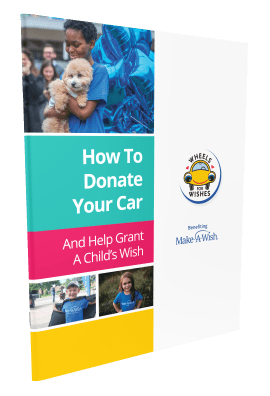Sarcoma is rare in adults, accounting for roughly 1% of all adult cancers; however it is more common in children--15 percent of all childhood cancers. This form of cancer is tumors that are found in the connective or supportive tissues in the body and also in the bones. Read more to learn about the risk factors, symptoms and treatment.
A lot of negativity tends to surround the word "cancer," but National Cancer Survivors Day (NCSD) offers a more positive message. June 5, 2016 is set aside as the day to celebrate survivors, inspire those who were recently diagnosed, support families and bring the community together.
During the month of July, it is Bladder and Gastrointestinal Cancer Awareness Month. There are fewer than 200,000 cases of bladder cancer per year in the U.S. Bladder cancer also has a low mortality rate because it is usually caught in the early stages. Gastrointestinal cancer involves many organs within the digestive tract including the esophagus, gallbladder, liver, pancreas stomach, small intestines, bowel (large intestines and rectum) and anus. This cancer involves a large area of the body, making this one of the most common types of cancers. Gastrointestinal Cancer involves many organs making it difficult to detect, and, because of that, it has a high mortality rate.
May is Cancer Research Month, and it's a great time to learn more about the lifesaving advances that researchers have made over the years. Cancer research is a major field of study, and new discoveries are made on a daily basis. Our understanding of cancer has grown immensely over the past few decades. In honor of Cancer Research Month, here are a few interesting facts you may not have known about cancer research.
Since 1994, the last week in April has been celebrated as National Infant Immunizations Week in the United States. This year National Infant Immunization Week is held from April 16-23, the same week as World Immunization Week. The World Health Organization promotes in all of its six regions access to universal vaccination and international cooperation. NIIW serves many purposes, including as a call to action for all parents and healthcare providers to continue the use of vaccinations with children, to share information about protecting our kids in order to keep healthy and safe communities, and to celebrate the importance of vaccinating infants from preventable diseases.
There have been many achievements due to vaccinations. For example:
- Infants and kids are now protected from 14 vaccine-preventable diseases before their second birthday.
- In the 1950s, nearly every child contracted measles, and some even died from it. It’s a serious disease. Today, many physicians who have been practicing for many years have never seen a case of measles.
- Children born between 1994 and 2013 who received vaccinations will prevent around 322 million illnesses, 21 million hospitalizations, and 732,000 deaths during the course of their lives.
Each year, World Health Day is celebrated on April 7. This year's World Health Day will focus on preventing and managing diabetes with the theme "Beat Diabetes." More than 422 million people worldwide have diabetes, and this number continues to rise. Diabetes is a concern for adults and children alike, but World Health Day is the perfect opportunity to learn more about the disease and reduce your risk. Today is also a great time for those already living with diabetes to learn about managing symptoms in the best way possible.
April is Cancer Control Month, an observance declared by the president in office every year since the 1930s. This month is to observe the advances we’ve made in medical science for battling cancer, and to remind Americans that this battle is far from over. Cancer will soon be the leading cause of death in the United State but research is getting closer every day. It’s time to look at the hard facts and consider lifestyle changes and options for regular screenings. You can show your support and concern for cancer survivors during this month, and make April matter for you and your community.
April is the awareness month for four types of cancer: head and neck, esophageal, and testicular. It’s an important time to discuss these different diseases because some can be prevented through self-care, while others need to be discovered during examination by a doctor. Many of these cancers are related because of the three ways that the disease spreads throughout the body:
- Tissue. Cancer cells can spread from where they began by developing into nearby regions.
- Lymph system. When cancer gets into the lymph system, it spreads through the lymph vessels to other parts of the body.
- Blood. If cancer gets into the blood, it travels through the blood vessels to other areas.
Cancer awareness months are not meant to cause worry or hypochondria. The purpose of this month is to spread awareness about these diseases, many of which are preventable through lifestyle choices and are also highly treatable.
Spring is in the air in much of the country, and kids who have spent months bundled up during the winter are ready to get outside and play. For many kids, that means riding their bikes, scooters, or skateboards with friends through the neighborhood.
March is Brain Injury Awareness Month, and helping keep children safe from head injuries is very important. A traumatic brain injury (TBI) occurs when someone's head is hit by something or shaken violently. According to the Centers for Disease Control and Prevention, approximately 1.7 million people receive TBIs each year. Of children up to 19 years old, TBI results in 631,146 trips to the emergency room each year.
Brain injuries, including concussions, can occur to kids while biking, during sports games or even on a playground if they were to fall while playing and hit their head. As a parent, before you let your kids go out biking, you need make sure that their helmet from last season still fits properly. If you have to buy a new helmet, make sure it fits snug. Buying a larger size that they can grow into can lead to disastrous consequences if they fall and hit their head. If the helmet doesn't fit properly, it won't protect as it should in the event of a fall.
What Symptoms Should Parents Look For?
According to Parent Center Hub, the term traumatic brain injury is used to describe trauma to the head that can cause permanent changes to areas of their mental cognition such as:
- Thinking and reasoning
- Understanding certain words or parts of language.
- Short-term memory loss
- Paying attention
- Problem-solving
- Thinking abstractly
- Speech and other communication skills
- Behavioral patterns
- Walking or other physical activities
- The ability to learn new things, especially if a skill was never introduced to the child before trauma.
According to the Brain Injury Association of America, there are some essential ways to protect your children’s safety and significantly reduces the risk of brain injury. make sure your children (and you), stay safe from brain injuries:
- Wear a seat belt every time riding in a motor vehicle.
- Buckle children in the car using a child safety seat, booster seat, or seat belt according to the child’s height, weight and age. Children should start using a booster seat when they outgrow their child safety seats. Children should continue to ride in a booster seat until the lap/shoulder belts in the car fit properly, typically when they are approximately 4-foot-9 tall. Local police or fire departments often have clinics for parents to help make sure child safety seats are properly installed.
- Wear a helmet and make sure children wear helmets that are fitted properly. Specialty bike shops generally have staff member who are great at fitting helmets. The right helmets can reduce the risk of severe brain injuries by 88 percent, according to SafeKids.org.
- Make sure playground surfaces are made of shock-absorbing materials, such as hardwood mulch or sand, and are maintained to an appropriate depth.
- Use the right protective equipment and make sure it is maintained properly.
Help Local Children’s Charities
Each year, many children are affected by serious or chronic (?) medical condition. Vehicle donations help to provide these children with better lives. Donate a car, truck, motorcycle, boat, or camper and let Wheels For Wishes turn your vehicle into hope and encouragement for a child in your community.
When you donate a vehicle to Wheels For Wishes, your donation will go towards supporting the children’s charities in your area. See which charity your donation will benefit by checking out our Chapter Locator. When you donate a car, truck, boat, or motorcycle to Wheels For Wishes, you will receive free pick up or towing of your vehicle. To make a car donation, simply call [chapter_phone] or make your donation online.
Help to support children’s charities by donating your vehicle to Wheels For Wishes.
Spring is in the air in much of the country, and kids who have spent months bundled up during the winter are ready to get outside and play. For many kids, that means riding their bikes, scooters, or skateboards with friends through the neighborhood.
March is Brain Injury Awareness Month, and helping keep children safe from head injuries is very important. A traumatic brain injury (TBI) occurs when someone's head is hit by something or shaken violently. According to the Centers for Disease Control and Prevention, approximately 1.7 million people receive TBIs each year. Of children up to 19 years old, TBI results in 631,146 trips to the emergency room each year.
Brain injuries, including concussions, can occur to kids while biking, during sports games or even on a playground if they were to fall while playing and hit their head. As a parent, before you let your kids go out biking, you need make sure that their helmet from last season still fits properly. If you have to buy a new helmet, make sure it fits snug. Buying a larger size that they can grow into can lead to disastrous consequences if they fall and hit their head. If the helmet doesn't fit properly, it won't protect as it should in the event of a fall.
What Symptoms Should Parents Look For?
According to Parent Center Hub, the term traumatic brain injury is used to describe trauma to the head that can cause permanent changes to areas of their mental cognition such as:
- Thinking and reasoning
- Understanding certain words or parts of language.
- Short-term memory loss
- Paying attention
- Problem-solving
- Thinking abstractly
- Speech and other communication skills
- Behavioral patterns
- Walking or other physical activities
- The ability to learn new things, especially if a skill was never introduced to the child before trauma.
According to the Brain Injury Association of America, there are some essential ways to protect your children’s safety and significantly reduces the risk of brain injury. make sure your children (and you), stay safe from brain injuries:
- Wear a seat belt every time riding in a motor vehicle.
- Buckle children in the car using a child safety seat, booster seat, or seat belt according to the child’s height, weight and age. Children should start using a booster seat when they outgrow their child safety seats. Children should continue to ride in a booster seat until the lap/shoulder belts in the car fit properly, typically when they are approximately 4-foot-9 tall. Local police or fire departments often have clinics for parents to help make sure child safety seats are properly installed.
- Wear a helmet and make sure children wear helmets that are fitted properly. Specialty bike shops generally have staff member who are great at fitting helmets. The right helmets can reduce the risk of severe brain injuries by 88 percent, according to SafeKids.org.
- Make sure playground surfaces are made of shock-absorbing materials, such as hardwood mulch or sand, and are maintained to an appropriate depth.
- Use the right protective equipment and make sure it is maintained properly.
Help Local Children’s Charities
Each year, many children are affected by serious or chronic (?) medical condition. Vehicle donations help to provide these children with better lives. Donate a car, truck, motorcycle, boat, or camper and let Wheels For Wishes turn your vehicle into hope and encouragement for a child in your community.
When you donate a vehicle to Wheels For Wishes, your donation will go towards supporting the children’s charities in your area. See which charity your donation will benefit by checking out our Chapter Locator. When you donate a car, truck, boat, or motorcycle to Wheels For Wishes, you will receive free pick up or towing of your vehicle. To make a car donation, simply call [chapter_phone] or make your donation online.
Help to support children’s charities by donating your vehicle to Wheels For Wishes.
February is American Heart Month, a time dedicated to learning more about heart disease. Heart disease includes conditions such as stroke, high blood pressure, angina, rheumatic heart disease and coronary heart disease, which can cause heart attacks. These conditions would be rare in children since they normally affect adults as they age; however, it's never too soon to adopt heart-healthy habits that the whole family can benefit from!
Each year, nearly 13,000 cases of cervical cancer are diagnosed in the U.S. This disease was once one of the leading causes of cancer death among women, but the death rate has dropped more than 50 percent over the last 30 years.
Birth defects are structural changes that can be detected before birth, at birth, or any time after birth. They can affect almost any part of the body, such as the heart, foot, or brain. Birth defects are common, and according to the Centers for Disease Control and Prevention (CDC), birth defects affect 1 in every 33 babies born in the United States each year. January is National Birth Defects Prevention Month, and you can help to reduce your child’s risk of developing a birth defect by making healthy choices during pregnancy.
Parents work hard to make sure their kids are eating healthy by cooking meals at home when possible, reading labels and limiting the unhealthy snacks they eat. Unfortunately, labels don't always give you a good picture of what's in your kids' food and it's sometimes necessary to dig a little deeper.
In addition to learning more about lung, pancreatic and stomach cancer this month, November is also a great time to learn more about carcinoid tumors and other neuroendocrine tumors. If you don't know much about these tumors, Carcinoid Tumor Awareness Month and Neuroendocrine Tumor Awareness Day can be a great opportunity.
With all the attention that Breast Cancer Awareness Month gets during October, it's easy to forget about the awareness campaigns that follow in November. This month, you're encouraged to help raise awareness for lung cancer, pancreatic cancer, stomach cancer, and carcinoid cancer.
Most people are aware that October is Breast Cancer Awareness Month, but it is also Liver Cancer Awareness Month. Liver cancer is the second leading cause of cancer death worldwide. While it rarely affects children, awareness campaigns like Liver Cancer Awareness Month can be a great opportunity to teach children more about the healthy choices that can reduce their future cancer risk. Since it is possible for children to develop liver cancer, October is also an important time to learn more about the signs and symptoms of liver cancer in children.
October is a great time to help raise awareness and support breast cancer research, but you may not know that it's also Liver Cancer Awareness Month. Liver cancer is rare in children, but it is possible. Awareness months like Liver Cancer Awareness Month can also be a great time to learn more about the healthy choices you can make in your children's lives that will impact their future health and cancer risk.
Child Health Day has been around for quite some time. The federal holiday was introduced to Congress in 1928 and was celebrated for the first time in May 1929. Now it falls on the first Monday of each October, which is Oct. 5 this year.
Breast cancer does not affect children and it rarely affects teens, but breast cancer is something that may be possible to be prevent early on. Plus, treatments for many childhood cancers or critical illnesses can put children at risk for developing cancer in adulthood. This is why it is so important to raise awareness about breast cancer, regardless of age. It is important for men and women of all ages to be aware of the risk factors for breast cancer, especially during their teenage years. Breast Cancer Awareness Month is the perfect time to spread awareness and educate others.
Thyroid cancer is one of the few cancers that is becoming more common. In fact, thyroid cancer rates are rising more rapidly than any other type of cancer in the U.S. September is Thyroid Cancer Awareness Month, and you can make a difference by learning more and sharing what you know with others.







